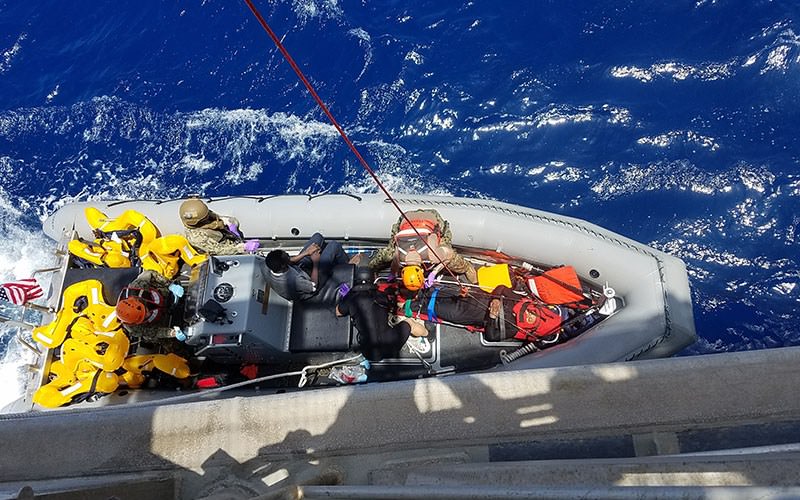
The sub-Saharan African invaders picked up only twenty miles off the Libyan coast by the US Navy ship USNS Trenton will be landed in Italy, that country’s media has reported.
According to the Il Fatto Quotidiano newspaper, there are now 42 Africans about the USNS Trenton, up two from the figure which the US Navy originally reported.
The newspaper said that the Africans are being transferred to an Italian coast guard ship and that they will then be landed in Italy.
USNS Trenton will arrive near the island of Lampedusa on Sunday morning where it will hand over the invaders. From there they will be transported to a landing point somewhere in southern Italy, having achieved their objective of getting the whites to give them a free taxi ride across the Mediterranean Sea.
The decision to take the Africans was made by the Italian government, the report continued, after a special request was made by the American embassy in Rome.
The Italian coast guard has been operating off the Libyan coast all along, and that organization this past week landed more than 900 African invaders in Sicily which had been picked up off the Libyan coast.
The policy of making the Italian coast guard operate on the other side of the Mediterranean Sea, far away from its legally-mandated area of operations (usually no more than twenty miles off the Italian coast) is a controversial policy which dates from the previous government’s time, and is likely to be ended by the new government.
Interior Minister Matteo Salvini has vowed to end the invasion, and is going to Libya at the end of this month to put measures in place to bring the activity of the smuggling rings in that country to an end.
RELATED ARTICLES
- Italy Fines TikTok with 10 million euros over Repeatedly Exposing Children to Indecent Content
- EU conservative leaders Meet in Romania for Reelection and Victory lap
- Italy Blames Russia For Hamas Attacks On Israel
- Italian Health Minister Faces Murder Charges Over COVID-19 Vaccine Deaths
- Italian Court Rules Vaccine Mandates Unconstitutional: 'Fatal Side Effects Too Risky'











